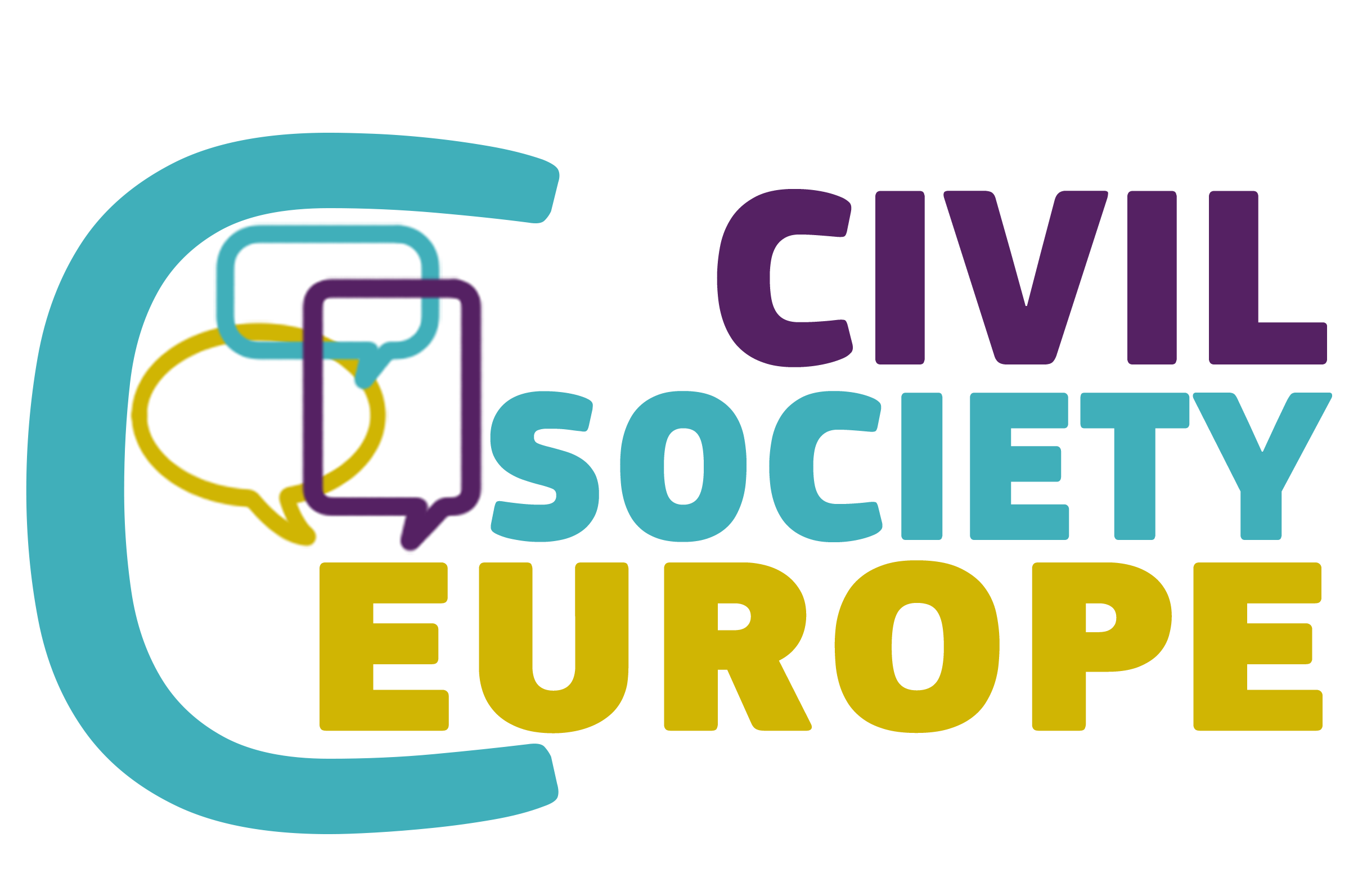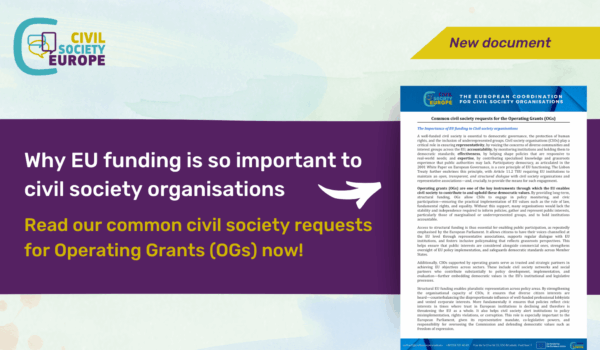Adequate funding to civil society is essential for democratic governance, the protection of human rights, and the inclusion of underrepresented groups. Civil society organisations give a voice to the concerns of diverse range of groups in the EU, hold institutions to account, help shape policies that are responsive to practical needs, and contribute knowledge that public authorities might lack.
Operating grants (OGs) are a key method that allows civil society to carry out their missions. Through long-term, structured funding, OGs enable CSOs to monitor policy, engage in civic participation, and guarantee the practical implementation of EU values such as fundamental rights, equality, and rule of law. Without this support, many organisations would lack the capacity to do so.
Access to this funding is crucial in enabling public participation, something continuously emphasized by the European Parliament. It enables citizens to have their voices heard at EU level, supports regular dialogue with EU institutions, and fosters inclusive policy-making that includes on the ground perspectives.
This is why Civil Society Europe and collaborators in our working group on funding have developed this document on common civil society requests for Operating Grants (OGs). In this, we outline the importance of these grants, the current challenges faced by CSOs in relation to them, and recommendations for improving them in the next Multiannual Financial Framework (MFF).


